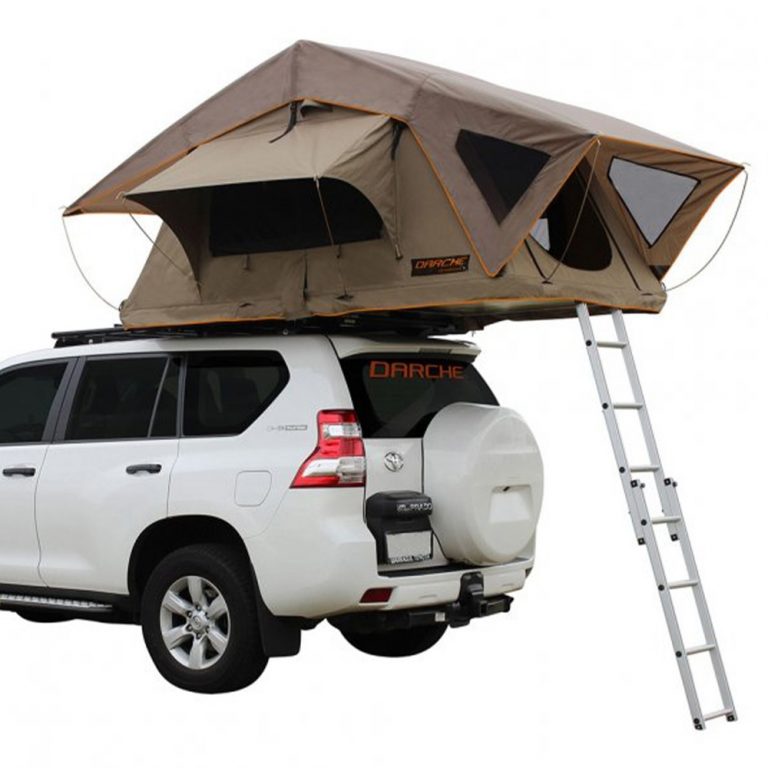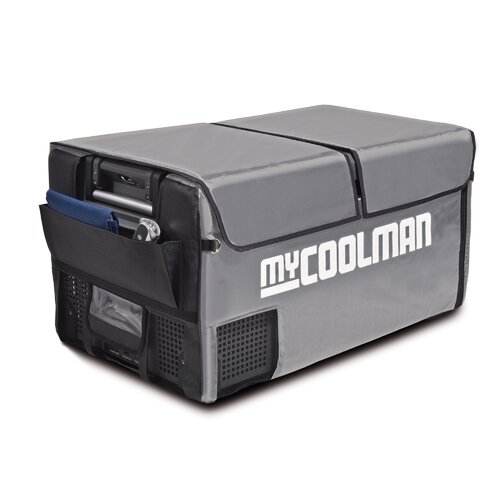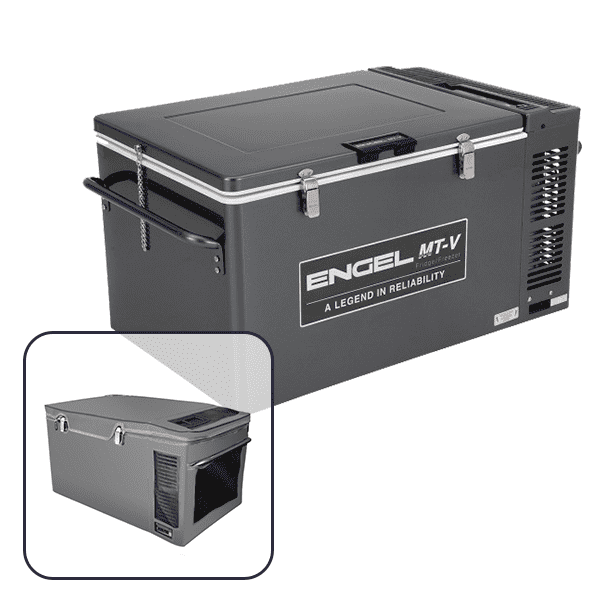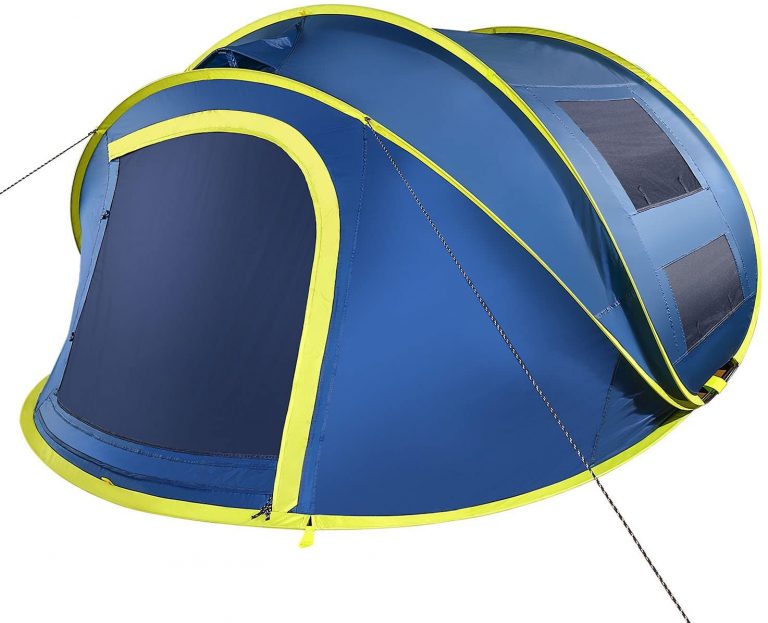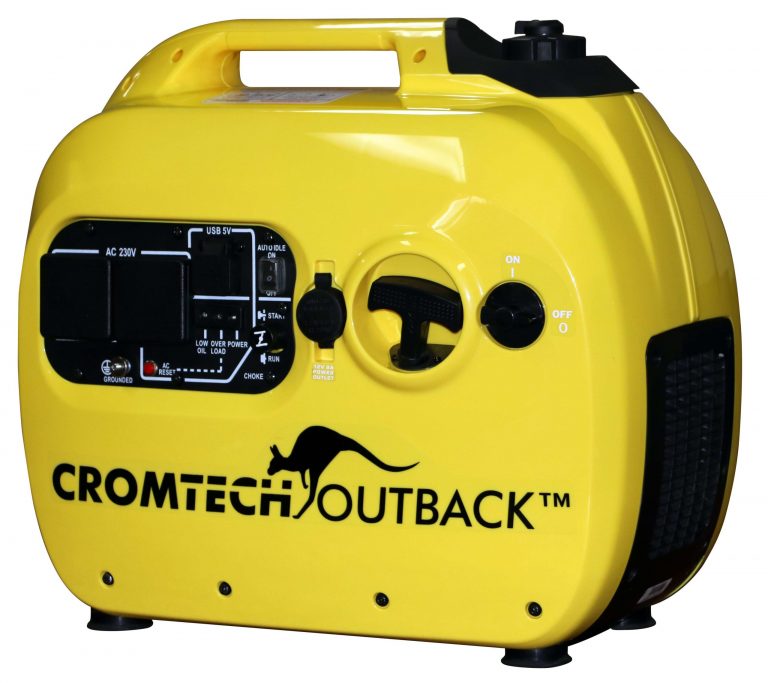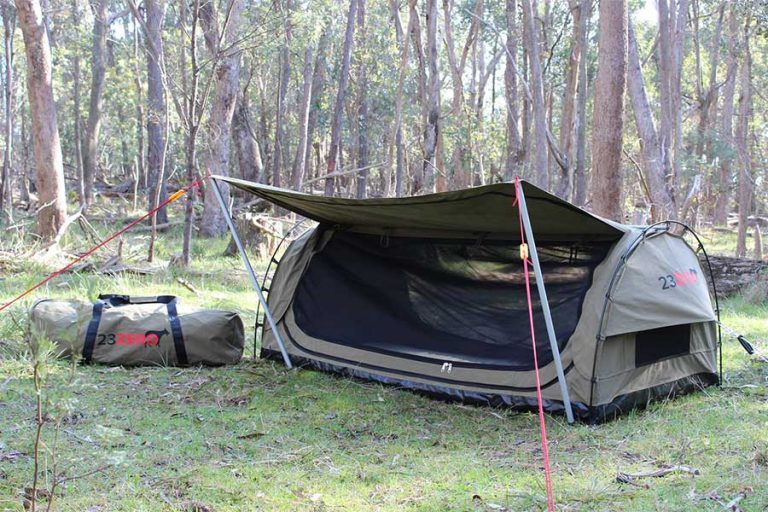Camper trailers allow you to travel long distances without worrying about comfort. However, while having extra space to cook, sleep, or store your belongings is extremely convenient, there is still a limit to how much trailer weight our vehicles could tow.
The chassis of bulky trailers alone comes with a hefty weight. If it contains kitchen, power, or bathroom setups alongside your food, tents, and extra wheels, it could be burdensome to tow. Depending on how compatible the trailer weight is with your car’s towing capacity, it could either ease or drag your mobility.
When it comes to cars, weight is not just a number – it is also a prime determinant of functionality. When investing in a camper trailer, it is important to consider three main factors: trailer weight, towing capacity of your vehicle, and weight distribution of your trailer’s contents.
Common Trailer Weight Terms
If you are a newbie in the camping trailer department, learning about all kinds of weights could be overwhelming. Below is a glossary of weight rating jargon that you might come across in your research.
Towing Capacity
Towing capacity is the maximum camper trailer weight that your vehicle can pull or tow. This will tell you the allowable heaviness of your trailer based on the design, engineering, and other additions by the vehicle manufacturer. It can be calculated by subtracting the kerb weight from the combined weight rating.
Payload Capacity
Payload capacity is the maximum cargo weight your camper trailer can carry. This will include the luggage and people hauled in your trailer. To calculate it, subtract the kerb weight from the total maximum weight of your vehicle or the gross vehicle weight rating.
Kerb Weight
Also spelled as curb weight, is the weight of your vehicle with only the operating consumables. This is the weight of your car unoccupied plus a full tank of fuel.
Tare Weight
Tare weight is the unloaded vehicle weight of the camper trailer. It’s also referred to as unladen weight or dry weight.
Tow Ball Weight
The ball weight (BW), also called tow ball mass, is the part of the weight of an unloaded camper trailer that’s laid upon a vehicle’s hitch. Keep in mind that the tow ball weight typically comprises 10% of the trailer’s loaded weight.
When heavy items are placed near the towing rear, you will have a high tow ball weight. This could lead the car to be lopsided. If heavy items are placed at the back, it will register a low weight, which would cause your trailer to sway. It is important to have a balanced positioning, especially when the tow ball weight is particularly heavy.
Aggregate Trailer Mass
Aggregate trailer mass (ATM) is the total weight of a fully-loaded camper trailer while lying idle and not reared to the tow vehicle. It is the sum of the weight of the trailer camper alone (tare weight) and the materials inside it (payload), including gas and other accessories.
Gross Trailer Mass
The gross trailer mass (GTM) is the total weight of a fully-loaded camper when finally hitched into the tow vehicle. To compute this, you simply have to add the kerb weight and the payload. Some also add the ball weight as it contributes to the overall weight of the trailer as well.
Gross Vehicle Mass
The gross vehicle mass (GVM) is the maximum weight that your tow vehicle may carry as allowed by the manufacturer. It includes the trailer, ball weight, and all the cargos (e.g. occupant/s, accessories, and other contents of both the vehicle and the trailer).
Gross Combined Mass
The gross combined mass (GCM) is the maximum weight of everything — vehicle, trailer, ball weight, and all other items.
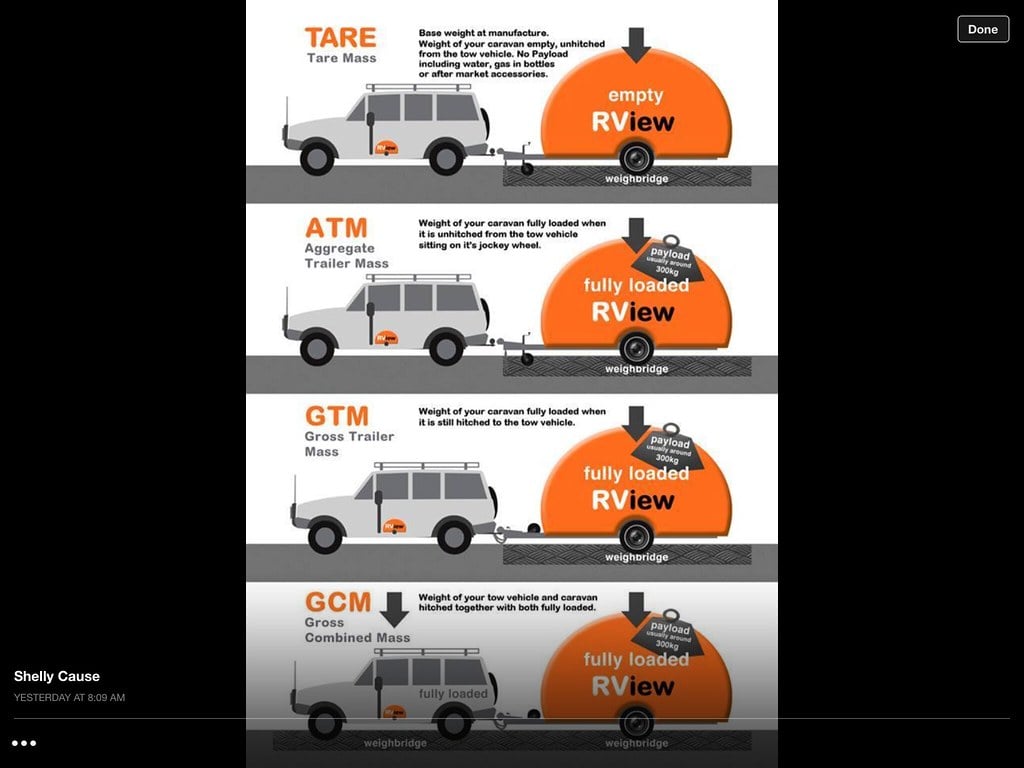
Why Weight Matters
In the world of camper trailers, weight and mass are synonymous. It is a measure of how light or heavy something is. The weight of camper trailers determines how they function.
When buying a travel trailer, consider where or what exactly you need it for, lest you get one that’s too light or too heavy for your vehicle. The trailer weight must complement your vehicle’s towing capacity, travel goals, and budget. You would have to consider the camper trailer size, cargo-carrying capacity, as well as tow vehicle capacities because all these affect the overall weight distribution.
Below are some other factors that are affected by how much your camper trailer weighs.
Safety
Driving with a trailer coupled in your rear makes it difficult to control the brake. Thankfully, axle breaks help you tow while making handling easier. Knowing the weight helps you decide the most adequate axle break for your camper trailer.
Overloaded trailers are dangerous because it makes controlling brakes when driving harder. Properly loading your trailers will make steering control more comfortable. This way, both the driver, passengers, and streets will be safe from camper trailer-related accidents.
In Australia, regulations state that a trailer exceeding 750 kg GTW must have an axle break. The required number of axle brakes and the kind of brake to be used vary depending on weight.
Override brakes are used for camping trailers that weigh 2000 kg GTW. Owners of lighter trailers may opt to use magnetic brakes, but the most recommended are electric brakes. Electronic brakes are legally required if your trailer exceeds 2000 kg GTW.
It is also legally required to have breakaway systems for trailers weighing 2000 kg GTW because these systems will automatically turn on the brakes in case of an emergency. Heavy trailers also utilize safety chains while towing, and the amount of chains needed depends on how much the trailer weighs.
Legality
Overweight towing is illegal because it can compromise your safety and the safety of others on the round. Australian towing rules, effective until 2024, states that, when weighing, the vehicle must be empty yet fueled and ready to hit the road. You should fill fuel up to 10 litres only and other necessary liquids to nominal capacity for it to operate.
Fuel Consumption
Speed and distance aren’t the only factors that contribute to fuel consumption. Towing a camper trailer, especially bigger ones, could increase your gas expenses. The reason is simple: you need to exert more force to pull a heavy trailer and make it move. Consequently, the engine consumes more fuel to wield the necessary force.
If you do not want to spend a fortune on fuel consumption, you can decrease the weight to tow.
Drivability and Handling
Heavier trailers are harder to drive and control, especially when turning through roads. The heavier your trailer gets, the more demanding the requirements to pull it around.
Wear and Tear
Bigger trailers are harder to maintain, plus towing a hefty trailer will gradually cause your vehicle stress and wear it out. Vehicle sagging and tires getting worn down are common occurrences when a vehicle tows beyond its capacity.
Carrying Capacity
Weight is directly proportional to how much stuff your towing vehicle and camper trailer can carry. Generally, heavier trailers can accommodate more cargo.
How Much Does A Camper Trailer Weigh In Australia?
There are many different kinds of camper trailers that vary in shape, size, and weight. There are also different kinds of weight to consider. When buying, you should look at its tare weight.
The average weight of Australian camper trailers is 750-2000 kg. Small trailers have an average of 90-270 kg tare mass. Medium-sized camper trailers can weigh 450-3000 kg. Large-sized campers typically weigh 300-5700 kg.
Top 3 Australian Camper Trailers
Here are the top 3 Australian camper trailers with the best average weights. You can also see our comprehensive article on the best camper trailers in Australia.
1. 2017 Cub Campers Frontier
Average empty weight: 1258 kg
Aggregate trailer mass: 1900 kg
This lightweight camper trailer has a queen-sized bed, kitchen, dining, and 100-litre water tank. And though it is expected to be heavy with its tiny home setup, it surprisingly still has enough space to carry more weight. With a 1900 kg ATM and a 1258 kg tare weight, you could still pack up to 500 kg more.
2. Mitchell Pioneer Campers
Average empty weight: 1555 kg
Aggregate trailer mass: 2000 kg
This camper trailer is like a home away from home. You get an entire electrical system with solar panel options and water services, together with a 125-litre water tank. You can also rest easy in its queen-sized bedroom, and you will never go hungry thanks to its rollout kitchen. In its back storage, you can stack up to 500 kg worth of luggage.
3. Bruder EXP 6 Camper
Average empty weight: 2200 kg
Aggregate trailer mass: 3100 kg
This is a little pricey, but a mobile home that can carry up to six people, excluding gears and other heavy weighing accessories, can be worth it. Though a 2200 kg tare weight seems heavy, it compensates with its allowable aggregate trailer mass. Even after subtracting the weight of the vehicle, you can store a payload of up to 900 kg.
Common Issues
If you’re buying something worth tens of thousands of dollars, you can’t just take the word of every ad you see. Even your salesperson could lie to you to sell a trailer you thought your vehicle could safely tow. Here are some of the marketing strategies you should be wary of.
Weight Wordplay
Some trailer manufacturers can list confusing weights in the trailer’s specifications – this is why knowing your trailer jargon is important. You might think a trailer with a high payload weight is a catch. However, a high payload is nothing if the tare weight is high too because your trailer weight alone will eat up your vehicle’s towing capacity.
Tricky Dealer Advertisements
Some display camper trailers come with installed gears and accessories already so buyers can imagine how to design the empty trailers. These furnished model trailers have the exact nameplate details as the unfurnished ones, yet their functionality differs because of all the upgrades.
Never mind if the weight of the trailer is actually overloaded or if it is functional when used – the design is what matters. Some gullible customers become victims of these inaccurate weight ratings, buy the exact trailer from the model, and put the same heavy gears – not knowing that the trailers are already at maximum capacity.
Step-By-Step Guide To The Perfect Weighing Camper Trailer For Your Tow Vehicle
Still confused about what kind of campers to get? Here’s a detailed guide to getting the correct weight setup.
1. Find Out Your Vehicle’s Towing Capacity
The first step is learning about your potential towing vehicle. Look at the back of your vehicle to see if there is a tow hitch attached. If there is, it is most likely set up for towing.
If you are still unsure, you can look at:
- The manufacturer’s axle code: This is usually located at the side of the passenger’s seat or the engine compartment. There, you can find weight details and towing capacities.
- The window sticker or nameplate: These also contain information about your vehicle’s weight.
- VIN: Get the vehicle’s towing capacity by searching for your vehicle’s towing guide online.
If all else fails, you can always contact your manufacturer for confirmation.
2. Weigh Your Towing Vehicle And Camping Components
After checking the owner manual, it could be helpful to go to a weighbridge service to have your vehicle weighed, accessories and occupants included. To get an updated kerb weight, fill in your vehicle with its usual content such as fuel, passengers, and accessories. Some added accessories, like roof racks, make your vehicle heavier than it already is.
Get a scale to weigh the passengers, gears, and other items you stash inside your vehicles. Make sure it does not exceed your payload limit. Next, add it to your vehicle’s updated kerb weight. The sum must match your camper trailer’s maximum gross vehicle mass (GVM).
3. Research Potential Camper Trailers
Once you have an idea of your vehicle’s towing capacity, make a list of camper trailers with an ATM compatible with your vehicle’s towing capacity. Consider your budget, vehicle’s quality and condition, purpose, and geography.
4. Do Not Go Over The Weight Limit Of Your Camper Trailer And Tow Vehicle
To double-check if your trailer weight is compatible with your tow vehicle, use the following equations:
- For trailer-vehicle weight compatibility: GCM = GTM + GVM
- For gears and weight limit compatibility: GTM = GCM – GVM
You can find the specifications you need in the manual. To be safe, choose a trailer that has a lot of leeway when its ATM and empty weight are subtracted. This way, you can have at least a 10-15% buffer to ensure you don’t go past the weight limit. That buffer will also be helpful against factors that may influence your weight balance while on the road, such as elevation.
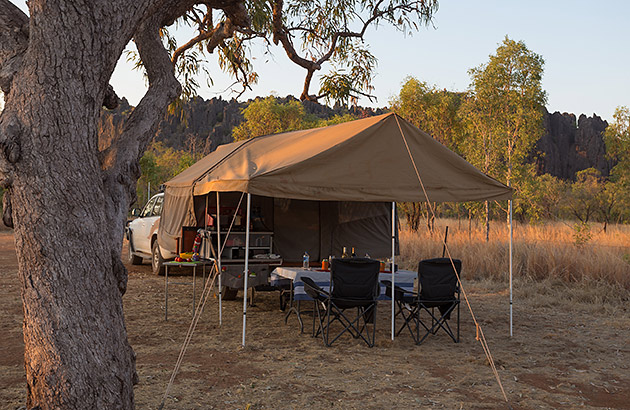
Other Factors That Contribute To Weight
We already know that trailer and car weight, tow ball weight, and other components such as fuel, accessories, and passengers are the prime contributors to overall weight. However, there are other variables that contribute to weight. For instance, the size, height, and shape of a trailer. Some of these factors, you can control – some you cannot. Keep these in mind before investing in a trailer.
1. Camper Trailer Material
We have already established that a camper trailer’s chassis is heavy. So it makes sense that the material used for the chassis can significantly affect the overall weight.
There are two main constructions for the superstructure of trailers:
Stick-N-Tin
First is the stick-n-tin construction method. This technique uses layers of aluminium over a wood frame. While this is affordable and durable, it is also quite heavy. To save weight, some replace the plywood with foam plastic products.
Laminate
Second is the laminate construction method. This employs layers of fibreglass over the aluminium frame. Modern methods also use HSLA steel sheet metal to make it more lightweight. You may employ either of the two kinds of lamination methods:
- Pinch Roller: Through this method, the adhesive is bonded to the wall through a pinch roller. It is a cheaper way to do things but also less efficient.
- Vacuum-bonding: Through this method, walls are assembled together using glue, and a vacuum chamber to apply sufficient pressure to the wall until the glue settles in.
Lamination methods through vacuum-bonding are more efficient and lightweight, but it is also quite costly. It is often used for luxury campers that like to add extra features and more storage space for their cabinets. And while lamination is effective in weight-saving, the added gears still cost extra weight.
2. Slide-Outs, Axle Weights, and Type
Slide-outs look great, are portable, and provide extra space. However, having slide-outs not only increases the price of your trailer but also increases the weight to up to 360 kg. So before getting one, think hard if you really need it!
How many axles you have matters, too. Dual axles make travelling with your trailer much safer but it also adds 90-130 kg. Check the maximum axle weight your vehicle can handle.
3. Terrain Elevation and Climate
The further you are from the centre of the earth, the smaller the acceleration due to gravity – hence, the lesser weight. Plus, high altitude reduces oxygen, which makes it more challenging for your vehicle’s engine to function. As this can affect fuel consumption, tires, and handling, it’s important to have a buffer weight, especially when travelling across different elevations.
Conclusion
Weight matters, at least for camper trailers and tow vehicles. A maxed-out weight can cause all kinds of trouble – it’s both illegal and extremely unsafe. Overloading will also stress your vehicle out and make it harder to control.
Simple math can help you figure out weight compatibility. Add your weights and check if it complements the manufacturer’s weight limit. Finally, remember to weigh everything, including your vehicle, trailer, gears, and passengers.
There are many other small factors that could slight the weight balance so always add a weight buffer. At the very least, make sure that only 80% of the camper trailer’s maximum weight is used at any given time.
That’s our overview on camper trailer weights! If you enjoyed this, be sure to check out our Guide To The Best Camper Trailers Available in Australia & Around The World. Safe travels!


